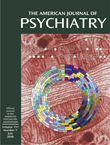Use of Self-Ratings in the Assessment of Symptoms of Attention Deficit Hyperactivity Disorder in Adults
Abstract
OBJECTIVE: The purpose of this research was to determine if adults can provide a true rating of their own childhood and current symptoms of attention deficit hyperactivity disorder (ADHD).METHOD: The authors conducted two studies. In study 1, 50 adult subjects completed a questionnaire assessing their ADHD symptoms in childhood. In addition, a parent of each subject completed a questionnaire rating the subject’s childhood ADHD symptoms. In study 2, 100 adult subjects completed a questionnaire rating their own current ADHD symptoms. The subject’s partner also completed a questionnaire rating the subject’s current ADHD symptoms. The correlation between subject and observer ratings was measured in each study. Inattentive symptoms, hyperactive-impulsive symptoms, and total symptoms were analyzed.RESULTS: Good correlations were found between subject and observer scores in both studies.CONCLUSIONS: The diagnosis of ADHD in adults relies on an accurate recall of childhood behavior and an accurate account of current behavior. The results of this study suggest that adults can give a true account of their childhood and current symptoms of ADHD.



